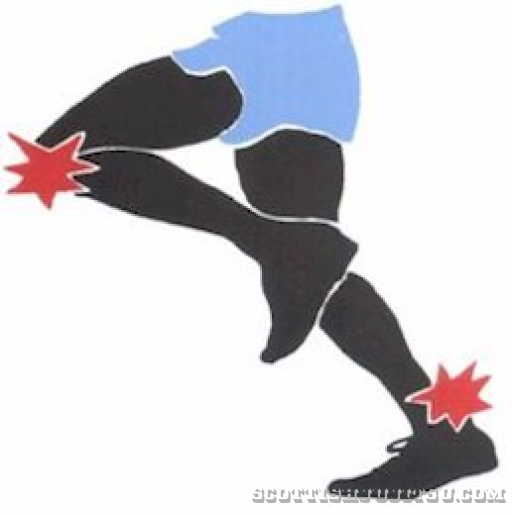Dripping with Sweat
Why do people love to sweat? The reasons are many. Excessive sweat accumulation creates the illusion of hard work and the thought that some sweat is good, more must be better. Sweat is a natural, rather pure, and inevitable product of exercising but the effectiveness o a workout in terms of fat loss, calories burned and cardiovascular conditioning bears little relationship to how much sweat is created. What really counts is the amount and type of activity you participate in.
WHAT ACTUALLY HAPPENS WHEN YOU SWEAT
When you exercise, your body produces excess heat as the muscles turn fuel into energy Your skin plays a key role in keeping you cool Blood carries excess hear from deep inside your body to your skin, allowing heat to radiate from the skin's surface. This blood shun or transfer is exemplified by a red face or flushed skin on a hot day.
Meanwhile, the body perspires, dumping water on your skin. Evaporation of sweat cools the body. Through perspiration and breathing fluid and heat is lost. Because this fluid comes from blood plasma, profuse sweating reduces blood volume. As blood supply and volume decreases, the exercising skeletal muscles can perform efficiently.
This also adds strain to the heart and blood delivery system. The blood shunt from the core of the body and decreased blood volume will cause the heart to beat more times per minute to meet the exercise oxygen needs or the working skeletal muscles and heart muscle. A faster heating heart muscle needs more oxygen because it is working harder. In this high stressed situation oxygen delivery may not be able to meet the oxygen needs of the heart. The skeletal muscles that literally move you can recover from this 'oxygen debt' however the heart muscle does not have the capacity to sustain muscle contraction without act equate oxygen. The end result of overheating could be a heart attack.
STAYING COOL
Even a moderate amount of exercise can build your core temperature up to 37.5-38ºc.
To minimise sweating whilst exercising
• drink approximately 100 ml of water every 10-15 minutes
• wear loose or "breathable'' clothing.
• exercise in an environment that is well ventilated and slightly cool at the start.
The quest for attainment of "dripping wet’ status is counter-productive from a safety and calorie burned standpoint. Excessive heat exposure or dehydration results in physiological strain to the body. You may produce a lot of sweat as the body frantically tries to cool its core temperature, but you may end up exercising a shorter duration at a lower intensity and the experience may be less than fun.
Physiologists suggest that 13 degrees Celsius is the highest temperature at which you can expect to perform your best. Temperature is not the sole cause of heat problems. Heat plus humidity (partly influenced by poor ventilation) is even more dangerous. The fact remains that cool rind well ventilated environments present the best conditions for "hard cardiovascular workouts".
Classroom or "home gym" temperatures may be warmer than 13 degrees Celsius, especially in the summer months. Because of this, it is important not to further increase the temperature and humidity by turning up the thermostat closing off ventilation, or wearing excessive clothing in order to retain heat.
The key is to create an environment that is appropriate to the activity you are going to participate in. A stretching session is different than a high intensity cardiovascular or strength workout. In this case you might want a room that is 21 degrees Celsius as warm temperatures facilitate stretching anti will help to promote relaxation. In a public facility where it may not be possible to control room temperature, a cooler environment is preferable, allowing you to add/take off clothing to help regulate temperature.
Though many people can tolerate a hotter; "stuffier," higher risk environment, there are issues of liability, safety and enjoyment. Some exercisers may have undiagnosed asymptomatic heart disease or some other ailment. A situation like this puts this person at risk because of the excessive demand it places on the heart.
WHAT'S ANOTHER REASON PEOPLE SWEAT
The answer is to lose weight. Excessively hot environments and layered clothing do promote water loss, and temporary weight loss through sweating. Like wise, plastic and rubberised suits may dangerously compromise your cooling system. You sweat excessively under them, but they don't allow evaporation and cooling to occur. Striving to "sweat! off the pounds" results only in loss of water weight which you'll replace as soon as you begin to drink fluids.
DO WOMEN REALLY NEVER SWEAT OR AT BEST ONLY GLISTEN?
Women are generally less prolific sweaters than men. A woman's cooling system probably relies more on blood circulation to transfer heat though the skin. Then as skin and core temperatures rise, sweating kicks in. Men make greater use of evaporative cooling. While men and women handle excess heat differently, their heat tolerance is about the same. It is obvious that quantity of sweat and onset of sweating once again fails to be the "measure" for effective exercise. Too many people think. "the harder you work, the more you sweat." And, "those not sweating aren't working hard enough." The answer to these..... NO SORRY YOU’RE WRONG.
Sweating to lose weight or create a false sense about the hardness of your workout should be avoided. For years sweating has been touted as means to good health. Unfortunately, there is little, if any demonstrable relationship between sweating and improved health.
IS IT WRONG TO DRIP WITH SWEAT?
Of course not. If you work at an exercise intensity that you've progressively attained, drink lots of water before, during and after your session. Wear appropriate clothing that encourages the cooling processes of the body. Exercise in a cool and well ventilated environment if indoors, and you still end up dripping wet with sweat... "Nice workout!"

